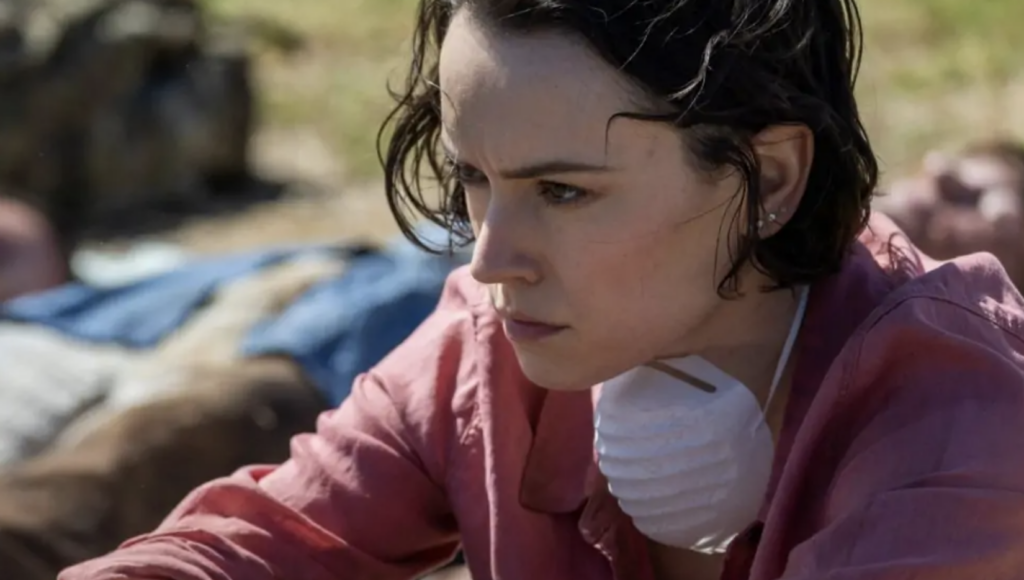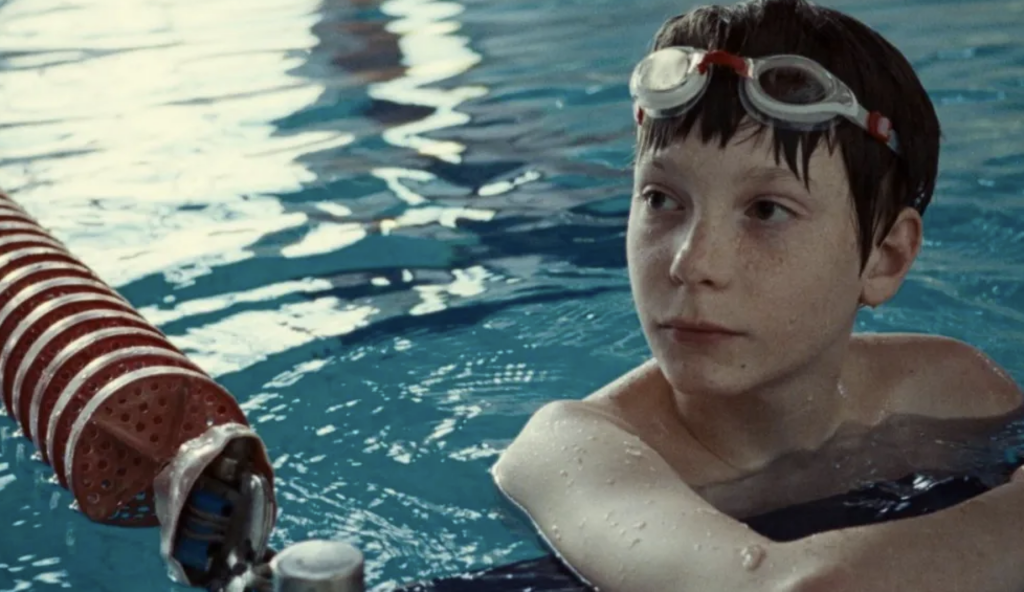One bad mutha
That familiar high-hat rhythm enters, sounding like a groovy lawn sprinkler, followed by wah-wah guitar and sustained piano notes. The mood invoked is at once sexy, nostalgic, cheesy, cool, and kitsch. The tune is Isaac Hayes’ “Theme From Shaft,” and it adds a clever touch to director John Singleton’s remake of the soulful 1971 classic. By kicking his film off with the identical musical score, Singleton immediately establishes a link to the cinematic past — and he ensures that neither U2 nor Limp Bizkit can be hired to do an “updating” of such an untouchable theme.
Gordon Parks’ original Shaft was a deliberately paced gem that had just enough plot twists, action sequences, hipster dialogue, and spiffy music to make it an entertaining piece some 30 years later. And three decades from now, people will probably still remember the spunky original more than the serviceable remake/sequel. Singleton wisely incorporates the same music into Shaft 2000. However, he isn’t quite as faithful to the first film’s irreverent tone and small-scale story line, opting to increase the graphic violence, the racial tension, and the glossy indiscretions of modern Summer Movies.
In this millennial version, NYPD Detective John Shaft (Samuel L. Jackson) is called to investigate a fight that resulted in the death of a young black man inside an upscale nightclub. The suspect is Walter Wade (Christian Bale), the silver-spoon son of a real estate mogul. A hateful racist (with apparently no motivation behind such an affliction), Wade claims self-defense before Shaft takes him into custody. Clues lead the detective to believe that a bartender (Toni Collette) saw the crime, but she disappears from the site.
Two years later, Wade, who skipped bail, returns to the States, only to be harassed by Shaft. When Wade rubs elbows with a Dominican drug lord, Peoples Hernandez (Jeffrey Wright), who has also made enemies with the detective, the two begin an uneasy alliance to get revenge on their shared nemesis. All the while Shaft is seeking the missing witness who may hold the key to convicting Wade.
Aiding Shaft’s crusade is fellow officer Carmen (Vanessa L. Williams) and streetwise flunky Rasaan (rapper Busta Rhymes in the cabbie-from-Total Recall role). And then there’s his uncle John Shaft (Richard Roundtree), a private dick who’s still the sex machine for all the chicks. (If Roundtree looks more like Jackson’s brother than uncle, that’s because there’s only a five-year age difference between the actors. This brings up the question: Why not just cast Roundtree in the lead? The answer: Roundtree doesn’t have the clout to open a movie with a $50 million budget.)
Much has been reported about the infighting among the film’s director, star, and mega-producer Scott Rudin (Sleepy Hollow). Occasionally the most quarrelsome movie sets beget some of the finest films, but in this case, the angry conflicts seemed to seep in and pollute the actual product. An undercurrent of racial tension in Shaft continuously works against the plot. (Already, area theaters have expressed fear of its volatile story line, with Ward Parkway and Cinemark on the Plaza refusing to hold advance screenings.) Singleton may have thought he was making Do the Right Thing, when in reality his picture is much closer to Dirty Harry. Whereas the original movie was more of an acknowledgment of black empowerment (“blaxploitation” is a term that has always been wholly inappropriate), the new Shaft is a more fascist fantasy, where one man makes his own Death Wish-like rules amid a backdrop rife with prejudicial conspiracies.
The movie isn’t more than 30 seconds old before racial strains surface in an exchange between the hero and a white beat cop. In this film’s environment every ethnic group is prone to behaving like its stereotype, and each character has a problem with anyone who isn’t part of the same race — which is of course why such narrow-minded people would all choose to live in New York, the country’s most cosmopolitan city. In contradiction, Singleton depicts a metropolis that is seemingly outraged by one ethnically motivated homicide while about 50 minority gang members, civilians, and cops are later murdered and no one blinks an eye.
When not spouting hateful expletives, the dialogue offered (courtesy of Singleton, Richard Price, and Shane Salerno) is surprisingly groan-inducing. Shaft succumbs to a flirtatious woman by remarking, “It’s my duty to please that booty.” Luckily, Jackson has enough of a screen presence to pull off such inanities, but some of his other co-stars in the precinct don’t fare as well. Shaft has some of the most unrealistic conversations between policemen since The Naked Gun. Dirty cop Jack Roselli’s (Dan Hedaya) explanation for his corrupt activities is sitcom-ish, making what should be a crucial, brutal encounter laughable.
Surprisingly, the scenes between Bale and Wright (so compelling as the freed slave in the locally filmed Ride With the Devil) feature some truly dynamic dialogue. It’s almost as if someone other than the credited screenwriters penned these exchanges, or maybe the skilled actors improvised them.
Despite a fairly intriguing first hour that captures the original film’s leisurely pace and street-smart mood, what finally conks Shaft‘s afro is a third act that lacks a compelling, forward-moving plot. There is no sense of urgency à la a ticking time bomb or impending terrorist act. Despite an effective action sequence with Peoples’ minions breaking into an apartment to silence a witness whom Shaft is guarding — essentially the exact reverse of Roundtree’s finale in the original, where he orchestrates a hotel assault to rescue a hostage — the movie devolves into a car chase/shoot-’em-up where the outcome is rarely in question.
Yet this climax doesn’t even include the racist Wade, the film’s real villain. It’s inexplicable why Singleton spends so much time making the audience fear and despise Wade — a true American psycho — when the eventual battle is between Shaft and Peoples, a more sympathetic opponent. Wade’s fate is left to a tacked-on courtroom showdown that is abrupt and unsatisfying.
Unlike, say, Casablanca or Psycho, the first Shaft was a movie ripe for remaking. Singleton and Jackson have brought some credibility to their update, especially in the film’s early scenes where conflicts are resolved through words, not homicides. It’s somewhat of a positive sign for Singleton, who has barely tread water since his stunning 1991 debut, Boyz N the Hood (he is still the youngest person ever to receive an Oscar nomination for Best Director). His recent Higher Learning and Rosewood were engaging ideas that were disappointingly executed, both reeking of studio meddling or a bid by the filmmaker to turn an art film into a commercial product.
Singleton’s Shaft sticks to its conceptual focus — a ’90s updating of a ’70s low-key classic — but it also gets mired in an attempt to pander to its intended audience by increasing the body count and exploiting its racial undertones. When Detective Shaft explains after a courtroom setback, “Justice gets tangled up in red tape, then bought off by the green,” he might as well be talking about this remake. Can you dig it?




